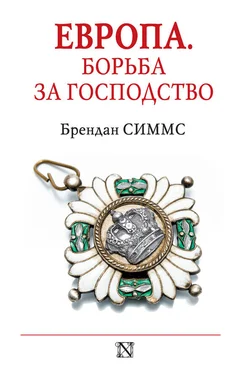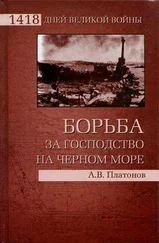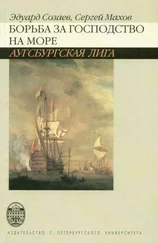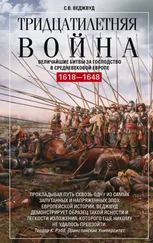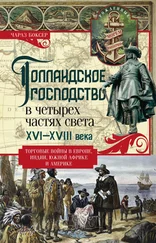Quoted in Henry A. Kissinger, A world restored. Metternich, Castlereagh, and the problems of peace, 1812–1822 (London, 1957), p. 20.
Geoffrey Ellis, Napoleon’s continental blockade. The case of Alsace (Oxford, 1981).
Maya Jasanoff, Liberty’s exiles. American loyalists in the Revolutionary world (New York, 2011).
Автор, очевидно, следует широко распространенному в западной историографии воззрению об «императоре Морозе», который только якобы и заставил Наполеона уйти из России . Примеч. ред.
Quoted in Simms, Struggle for mastery in Germany, p. 99.
Quoted in Krüger and Schroeder (eds.), Transformation of European politics, p. 460.
Alexander’s remarks are quoted in John P. LeDonne, The grand strategy of the Russian Empire, 1650–1831 (Oxford, 2004), p. 206.
Quoted in Eich, Russland und Europa, p. 150.
Blanning, ‘The Bonapartes and Germany’, p. 59.
H.-O. Sieburg, Deutschland und Frankreich in der Geschichtsschreibung des neunzehnten Jahrhunderts (Wiesbaden, 1954), p. 108.
James Chastain, ‘Privilege versus emancipation: the origins of Franco-Austrian confrontation in 1848’, Proceedings of the Consortium on Revolutionary Europe (1987), p. 247.
Anselm Doering-Manteuffel, Vom Wiener Kongress zur Pariser Konferenz. England, die deutsche Frage und das Mächtesystem, 1815–1856 (Göttingen and Zurich, 1991), pp. 137–8.
Рейнской конфедерации ( нем .) . Примеч. ред.
Peter Hofschroer, 1815. The Waterloo campaign. The German victory (London, 1999).
The Massachussetts Senate is quoted in James G. Wilson, The imperial republic. A structural history of American constitutionalism from the colonial era to the beginning of the twentieth century (Aldershot, 2002), pp. 130–32.
Вариантов русского прочтения этой фамилии очень много, выбран тот, который чаще всего встречается в исторических работах на русском языке . Примеч. ред.
Hermann Wentker, ‘Der Pitt-Plan von 1805 in Krieg und Frieden: zum Kontinuitätsproblem der britischen Europapolitik in der Ära der napoleonischen Kriege’, Francia, 29, 2 (2002), pp. 129–45 (quotation p. 137).
Enno E. Kraehe, Metternich’s German policy. Vol. II. The Congress of Vienna, 1814–1815 (Princeton, 1983).
John P. LeDonne, The grand strategy of the Russian Empire, 1650–1831 (Oxford, 2004), p. 208.
Ulrike Eich, Russland und Europa. Studien zur russischen Deutschlandpolitik in der Zeit des Wiener Kongresses (Cologne and Vienna, 1986), p. 172.
Wentker, ‘Der Pitt-Plan’, p. 141.
John Bew, Castlereagh. Enlightenment, war and tyranny, 1769–1822 (London, 2011), p. 377.
Brendan Simms, The struggle for mastery in Germany, 1779–1850 (Basingstoke, 1998), p. 105.
Henry A. Kissinger, A world restored (London, 1957), p. 33.
Betty Fladeland, ‘Abolitionist pressures on the Concert of Europe, 1814–1822’, Journal of Modern History, 38, 4 (1966), pp. 355–73 (quotation p. 363).
Paul Kielstra, The politics of the slave trade suppression in Britain and France, 1814–48 (Basingstoke, 2000), pp. 26–9 (quotation p. 28).
Thomas Neve, The Duke of Wellington and the British army of occupation in France, 1815–1818 (Westport and London, 1992), pp. 93–103.
Wolf Gruner, ‘Der deutsche Bund und die europäische Friedensordnung’, in Helmut Rumpler (ed.), Deutscher Bund und deutsche Frage, 1815–1866 (Munich, 1990), p. 248.
О внутригерманской деятельности и целях Германского союза: Jürgen Müller, Der deutsche Bund, 1815–1866 (Munich, 2006).
Anselm Doering-Manteuffel, Vom Wiener Kongress zur Pariser Konferenz. England, die deutsche Frage und das Mächtesystem, 1815–1856 (Göttingen and Zurich, 1991), pp. 57–72.
David Laven, ‘Austria’s Italian policy reconsidered: revolution and reform in Restoration Italy’, Modern Italy, 2, 1 (1997), pp. 1–33, где уделяется особое внимание геополитической составляющей.
Kenneth Bourne, Britain and the balance of power in North America, 1815–1908 (London, 1967), pp. 53–119.
Philip Harling and Peter Mandler, ‘From “fiscal-military state” to “laissez faire state”, 1760–1850’, Journal of British Studies, 32 (1993), pp. 44–70.
Jonathan Parry, The politics of patriotism. English liberalism, national identity and Europe, 1830–1886 (Cambridge, 2006), p. 46.
Frank Lawrence Owsley Jr and Gene A. Smith, Filibusters and expansionists: Jeffersonian Manifest Destiny, 1800–1821 (Tuscaloosa, 1997).
Edward Howland Tatum, The United States and Europe, 1815–1823. A study in the background of the Monroe Doctrine (New York, 1936), pp. 186–7.
John M. Belohlavek, ‘Let the eagle soar!’ The foreign policy of Andrew Jackson (Lincoln, Nebr., 1985), pp. 9–10.
Gary P. Cox, The halt in the mud. French strategic planning from Waterloo to Sedan (Boulder, San Francisco and Oxford, 1994), p. 97.
Michael Stephen Partridge, Military planning for the defence of the United Kingdom (New York, 1989), pp. 4–21, 147–8 and passim.
Henry A. Delner, ‘Alexander I, the Holy Alliance and Clemens Metternich: a reappraisal’, East European Quarterly, XXXVII, 2 (2003), especially pp. 138–50.
Derek Beales and Eugenio F. Biagini, The Risorgimento and the uni cation of Italy (Harlow, 2002), pp. 213–14.
Daniel Moran, Toward the century of words. Johann Cotta and the politics of the public realm in Germany, 1795–1832 (Berkeley, 1990).
Brendan Simms, ‘Napoleon and Germany: a legacy in foreign policy’, in David Laven and Lucy Riall (eds.), Napoleon’s legacy. Problems of govern – ment in Restoration Europe (Oxford and New York, 2000), pp. 97–112 (Görres is quoted on p. 101).
Букв. «Вартбургский фестиваль» ( нем .), праздник в замке Вартбург, устроенный немецкими студентами-националистами в честь 300-летия со дня обнародования тезисов М. Лютера и в четвертую годовщину «битвы народов» при Лейпциге . Примеч. ред.
Читать дальше
Конец ознакомительного отрывка
Купить книгу
